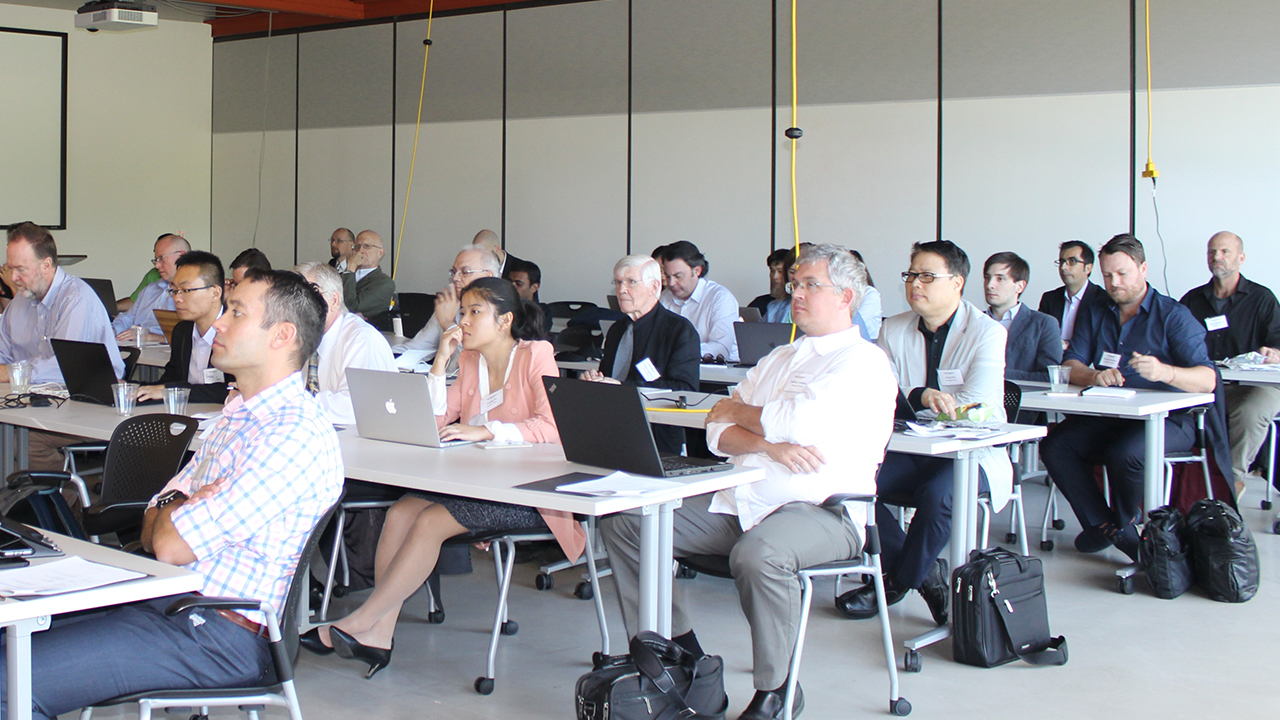
The Digital Building Lab (DBL) brought more than 50 people on campus for its annual Members' Meeting Workshops to get feedback on Georgia Tech's initiatives in architecture, engineering, and construction (AEC) and technology research.
The Digital Building Lab (DBL) gathered more than 50 people on campus for its annual Members' Meeting and Workshops to get feedback on Georgia Tech’s initiatives in architecture, engineering, and construction (AEC) and technology research.
Attendees included DBL members, Georgia Tech researchers, and a number of industry leaders from AISC, Arcom, Autodesk, Component Assembly Systems, Constructivity, HOK, Katerra, NIBS, Nucor, and Vectorworks.
The three-day event was held in May and included a DBL Members’ Meeting and two days of industry workshops with focused discussions on industry advancement.
Dennis Shelden, director of the DBL and an associate professor at the School of Architecture in the College of Design, said, “We were very encouraged by the level of interest shown, from our existing DBL members, new organizations interested in the program, and research faculty. Over the coming weeks we will be reviewing the results of the meeting and connecting DBL members to research projects. We are also ramping up for some really significant activities around the annual DBL Symposium on October 5-6, 2017.”
Georgia Tech faculty and students reviewed research proposals, including “Clash Prediction Based on Space Gridding by Bayesian Analysis in BIM Projects,” “ASE Program Opportunities,” “KBAD: Knowledge Base for Architectural Detailing,” and “Mixed Reality‐Enabled Spatiotemporal City Infrastructure Data‐Capture.”
The first workshop explored subcontracting trades’ data standards and workflows. The DBL has performed data standard and information delivery (IDM / MVD) development for numerous trades over the past decade. A number of new technical developments promise renewed interest and value for this standardization work: extending the data standards to web-based information exchanges and developing overall industry frameworks for data exchange workflows.
Participants received an overview of existing work and discussed potential forward-looking applications of the data to future industry data initiatives. The workshop brought together representatives of the industry trade organizations with leaders of next generation data and exchange initiatives.
The second workshop examined AEC web data services technologies. Web- and internet-data and communications protocols are rapidly evolving as needs for data interoperability and exchange encounter new demands of technology paradigms, including web microservices, web ontology applications (OLWL), and the Internet of Things (IoT). The existing technical frameworks for AEC data exchange (IFC / EXPRESS) are being reconsidered in light of these developments. The workshop’s goal was to initiate a set of research and development tasks to develop out this next generation AEC data architecture.
To view more photos from the event, please visit the DBL Facebook page.